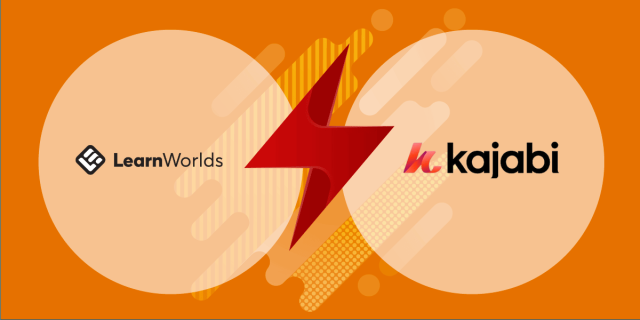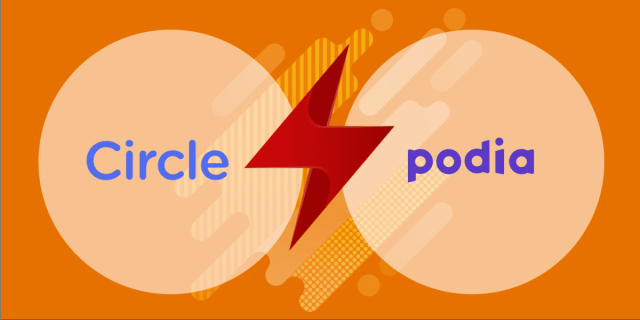In this post, I’m excited to share some fantastic alternatives to Circle.so. As we all know, Circle is a top-notch online community platform out there.
But, let’s face it – the Circle’s price tag might feel a bit steep considering the features it offers.
Here’re few things you might want to keep in mind:
- Circle’s Professional plan costs $89/mo but still doesn’t give you unlimited members and charges transaction fees too.
- If you want to use automation workflows to boost community engagement with triggers and actions, you’ll need to pay $199/mo for the business plan.
If you’re on a budget and looking to keep your community hosting costs within $50, Circle might not be your cup of tea.
So, let’s dive in and explore some fabulous Circle.so alternatives that can help you bypass these drawbacks.
Here’s a handy table of my top 5 picks for you:
| Product name | Starting price |
| Skool | $9/month |
| Heartbeat | $49/month |
| Mighty Networks | $95/month |
| Kajabi | $179/month |
| BuddyBoss | $299/year for 1 site |
Skool – Most popular (recommended)

Skool is a really well growing online community and course platform founded by Sam Ovens in 2019.
It’s designed to for creators to build their community and drive real-world results to their members.

Recently, Alex Hormozi made a huge investment in Skool, stating it was the biggest investment of his life. This has boosted the platform’s credibility and potential even more.
Skool’s user engagement is likely higher than Circle’s because of its cozy and comfortable UI and UX. It’s not just me – many people feel that Circle’s interface is too “professional” and it takes time to break the ice.
Pros 👍
- Intuitive UI/UX: Skool’s user-friendly interface helps members engage more with communities.
- Level-based access: Members can unlock courses and features as they progress through different engagement levels.
- Gamification: Keeps members active with points, levels, leaderboards, and streaks.
- Community discovery: Works like Facebook’s search, making it easy to find communities that match your interests.
- Course creation: You can build courses with drip content. It’s basic for now though.
- Calendar feature: Built-in calendar for planning community events with level-based attendance options.
- Mobile apps: Feature-packed iOS and Android apps for learning on the go.
Cons 👎
- Limited marketing features: Missing advanced tools like checkout customization and upsells.
- No built-in live streaming: You’ll need to use other platforms for live events.
- Limited automation: Doesn’t have advanced automation workflows for managing your community.
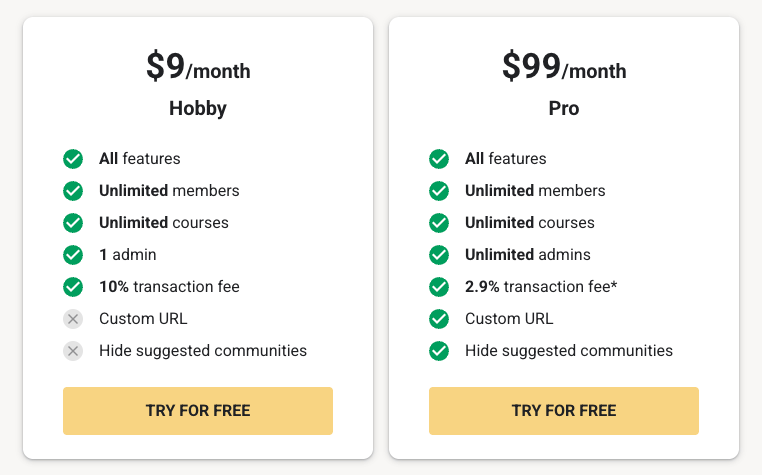
Skool offers 2 pricing plans.
- Hobby Plan ($9/mo): Gives you almost everything you need but has a 10% transaction fee. You get just one admin account. No extra admins, moderators, or team members to help you manage things.
- Pro Plan ($99/mo): Comes with a much lower 2.9% transaction fee. You can add multiple admin accounts as your team grows. You also get custom URL options and can hide those suggested communities that pop up.
I personally have my community in Skool, you can read more here in my standalone review post.
👉 Bottomline: Skool stands out for its focus on community engagement and gamification. While it may not have the depth of features found in some competitors, its intuitive design and engagement-centric approach make it a strong contender in the community platform space.
Heartbeat – A good alternative

Heartbeat is a relatively newer platform than that of Circle, which is following the footsteps of Circle.
With Heartbeat, you can host communities, events, and content on your own domain, making it a versatile solution for course creators, community managers, and solopreneurs.
Pros 👍
- Flexible design: You can customize your community with block-based building tools.
- Rich communication: Voice rooms (like Clubhouse) and video rooms for real conversations.
- Course integration: Works with Notion to manage your course materials.
- Mobile access: Native iOS and Android apps keep your students engaged on the go.
- Powerful automation: Automation workflows and bulk actions that work just like Circle.
- Networking features: Match-ups connect members based on interests (think Tinder, but for communities).
Cons 👎
- Market presence: It’s newer and hasn’t built a big following yet.
- Pricing advantage: Better value for your money compared to Circle.
- Potential confusion: The app icon is heart-shaped, so your wife might think it’s a dating app.
Their Starter plan at $49 per month only supports up to 1000 members, which is better than Circle’s 100-member limitation.
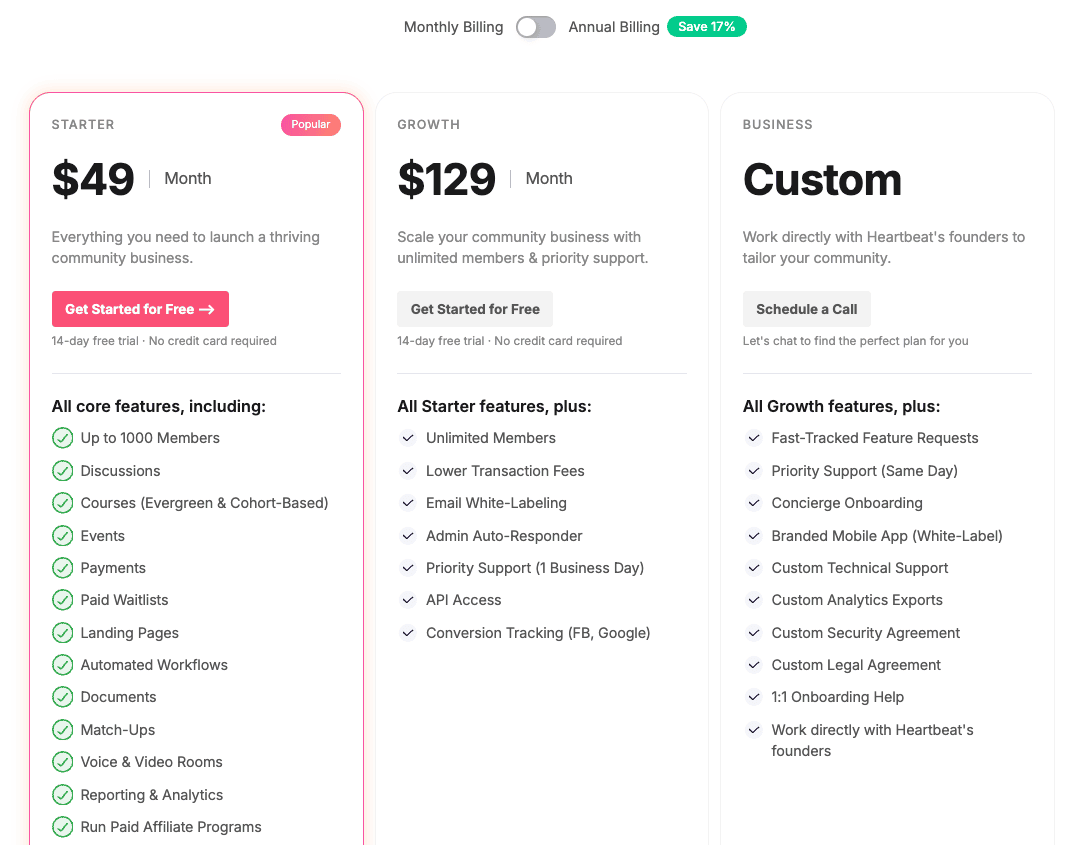
If you exceed the 1000 member mark, you need to go with their Growth plan at $129 per month for unlimited members.
👉 Bottomline: In my opinion, Heartbeat is just as impressive as Circle in terms of user interface, integrations, and automation workflows. Although it’s not as popular, its rapid implementation of features is commendable. If you’re seeking a reliable yet affordable alternative to Circle, I recommend keeping an eye on this platform.
Mighty Networks – Most popular alternative

Mighty Networks is a serious competitor to Circle.
It’s one of the oldest community platforms out there.
But it feels clunky compared to other options and ran into problems trying to match Circle’s user experience during its redesign.
Beyond the standard features like Community Spaces, Courses, and Branded Mobile apps, Mighty Networks has some unique capabilities:
- Customizable welcome checklist for new community members.
- Support for unlimited hosts, moderators, and members across all plans.
- Built-in ambassador program for member referrals.

It has the best mobile app experience you’ll find.
Everything works smoothly. You can access courses, memberships, communities, and live streaming right from your phone.
I really like their “Online Now” feature and location-based matchmaking.
One of Mighty Networks’ biggest strengths is its custom-branded mobile apps.
They call this Mighty Pro, similar to Circle Plus. These apps are truly white-labeled, so it feels like you’re building your own platform.
Mighty Pro offers a complete done-for-you service if you don’t want to create apps yourself. Their team handles everything from launch to design, customization, and even gives you VIP technical support.
Pros 👍
- Flexible design options: Lots of space templates you can use to structure your community and courses however you want
- Community engagement: Location-based matchmaking that connects members near each other
- Live event capabilities: Built-in live streaming so you can run webinars and events
- Schedule management: Native calendar that shows your whole program at a glance
- Mobile accessibility: Feature-packed apps for iOS and Android
- Revenue potential: Zero transaction fees when you monetize
Cons 👎
- User experience issues: The interface feels clunky and hard to navigate
- Engagement limitations: You won’t find any gamification features
- Communication gaps: There’s no weekly digest option
- Payment restrictions: It only works with Stripe
- Integration challenges: You’re stuck with limited integrations and no API

Mighty Networks offers 3 different plans:
- Launch plan ($95/mo): Great for educators who want to mix community with learning by adding courses and challenges to their membership, plus some basic automation tools.
- Scale plan ($215/mo): Built for growing brands that need advanced tools like APIs, and better automations to help their community grow.
- Growth plan ($425/mo): The top-tier option for established creators looking to make the most money with advanced automations, and bigger livestream hosting abilities.
To get a clear idea whether Mighty Networks is right for you or not, you can refer my dedicated review on Mighty Networks.
Or you can even consider referring this blog post where I compare Mighty Networks with Circle.
👉 Bottomline: Although Mighty Networks has many unique features compared to Circle, they have failed to properly emphasize good UI and UX. Additionally, it lacks API integrations and automation workflows.
Kajabi Communities – All-in-one

Kajabi is one of the most advanced online course creation platforms available today.
Along with courses, it supports digital products, memberships, communities, email marketing, coaching, events (webinars) and podcasts.
I appreciate that Kajabi is an all-in-one platform, eliminating the need for multiple apps and integration headaches.
Previously, Kajabi had a basic community component.
However, they recently acquired Vibely, which has allowed them to enhance their community functionality. They can now implement gamification without relying on a specialized community platform.
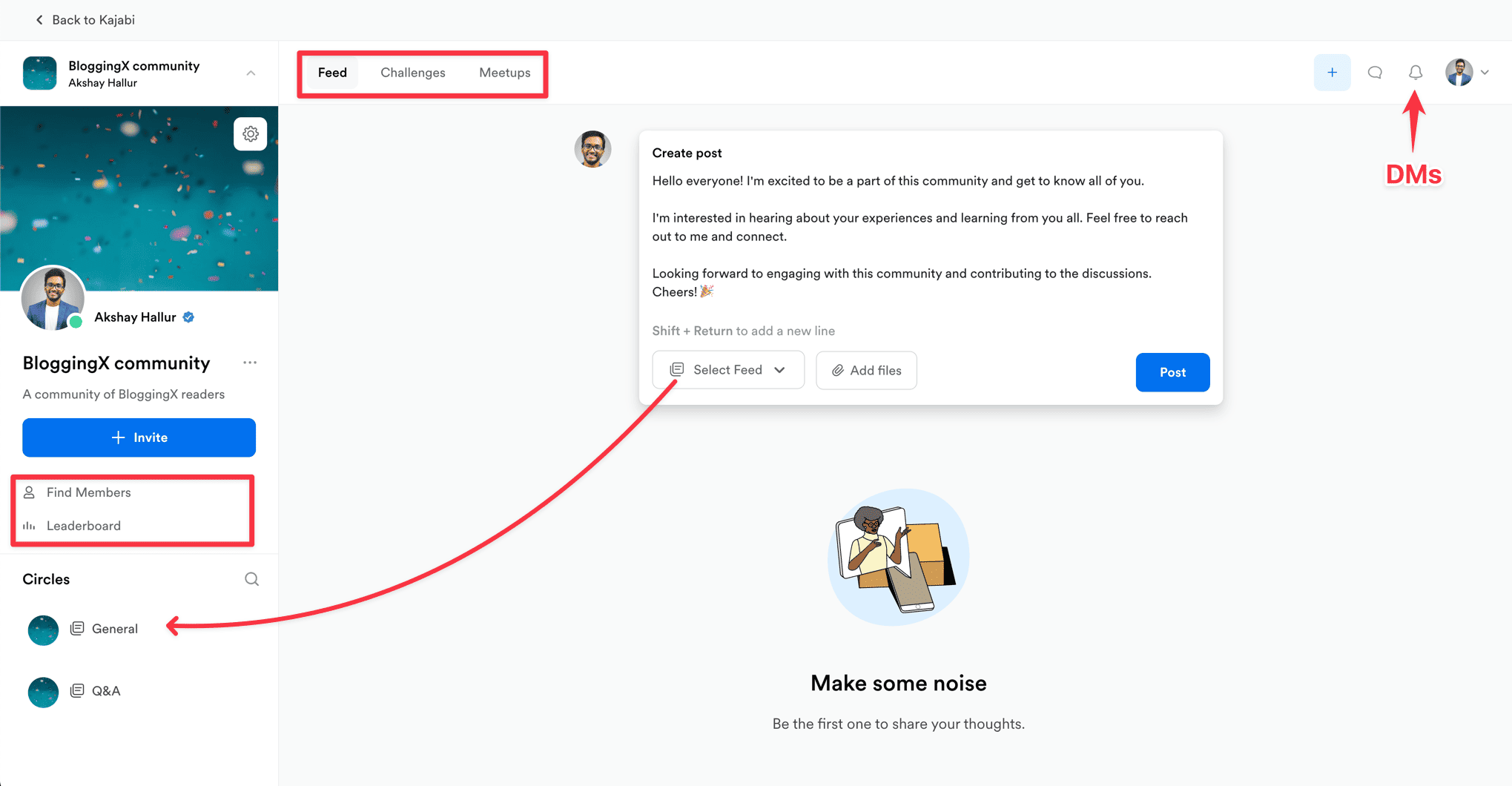
Kajabi communities offer unique features like challenges and direct meeting scheduling through tight integration with Kajabi Events for webinars.
It also comes with additional features like:
- Newsfeed, chats, and DMs
- Live video calls
- Accountability tools and progress tracking
- Challenges
- Resources
- Events and RSVPs
- Admins
- Member directory and leaderboard
- Etc.
Kajabi also comes with gamification features. Here are some Kajabi community examples to inspire you.
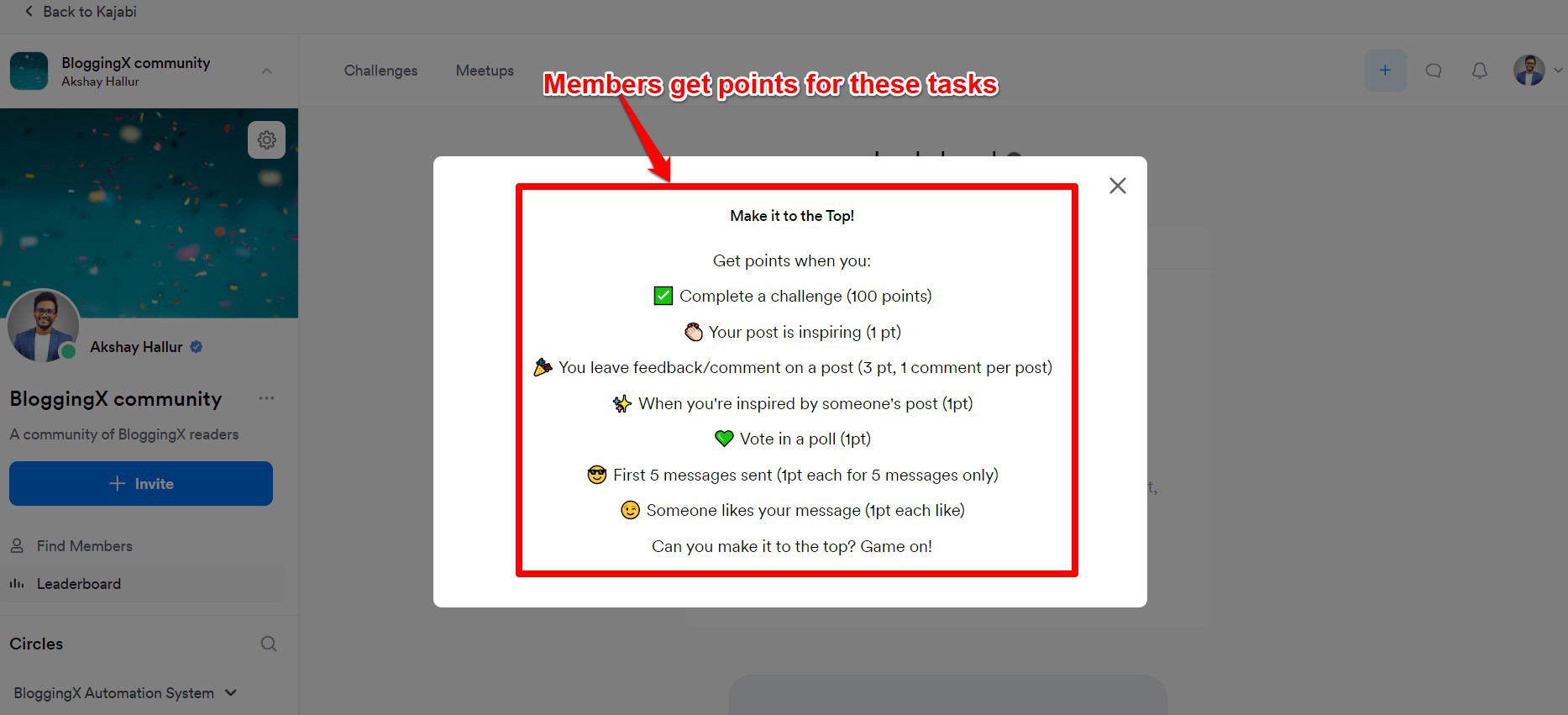
As you can see in the above screenshot, you can assign points for your community members based on the actions that they take in the community. This feature is not even present in specialist community platforms like Circle or Mighty.
For most people, the Growth plan at $249 per month would be ideal.
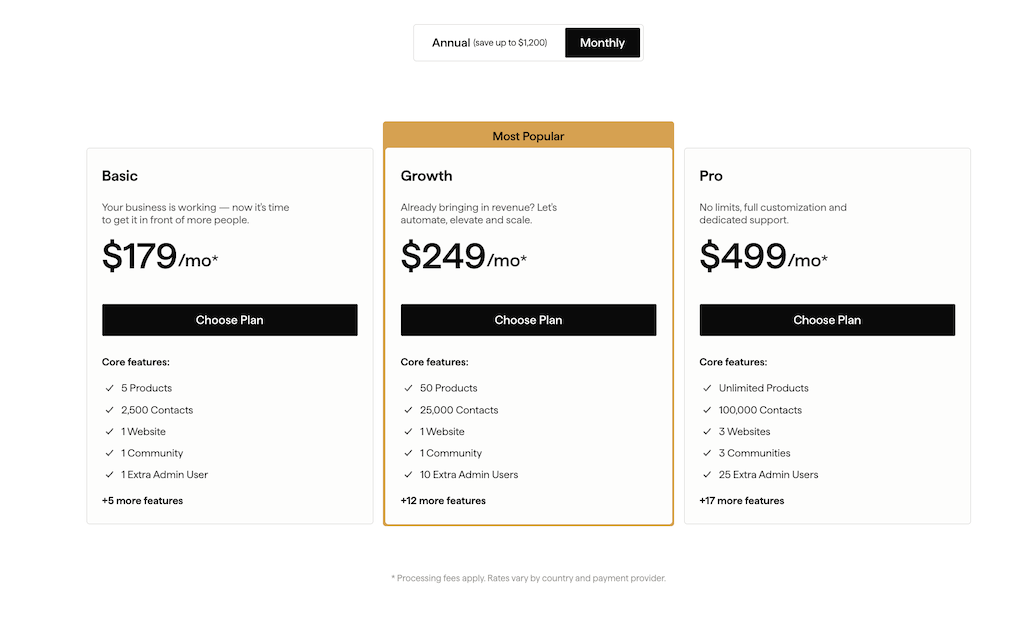
Although all the features of Kajabi are available in all the plans, the 5-product limit that it imposes, even in their Basic plan at $179 per month, is a major downside.
You can read my detailed Kajabi review for more information on my personal experience with it. Or this post on Kajabi communities if you want to dive deep into their communities feature.
👉 Bottomline: Kajabi’s community feature is robust, but may be an overkill for those only seeking a community platform. It excels as an all-in-one solution, offering a comprehensive range of features with significant depth for those willing to consolidate their digital products and community on one platform.
👉 Also read: Circle.so vs Kajabi 2.0: My Views Using Both 2026
BuddyBoss – WordPress-based community solution
If you are already familiar with WordPress and want a community plus course platform, BuddyBoss is the best option for you.
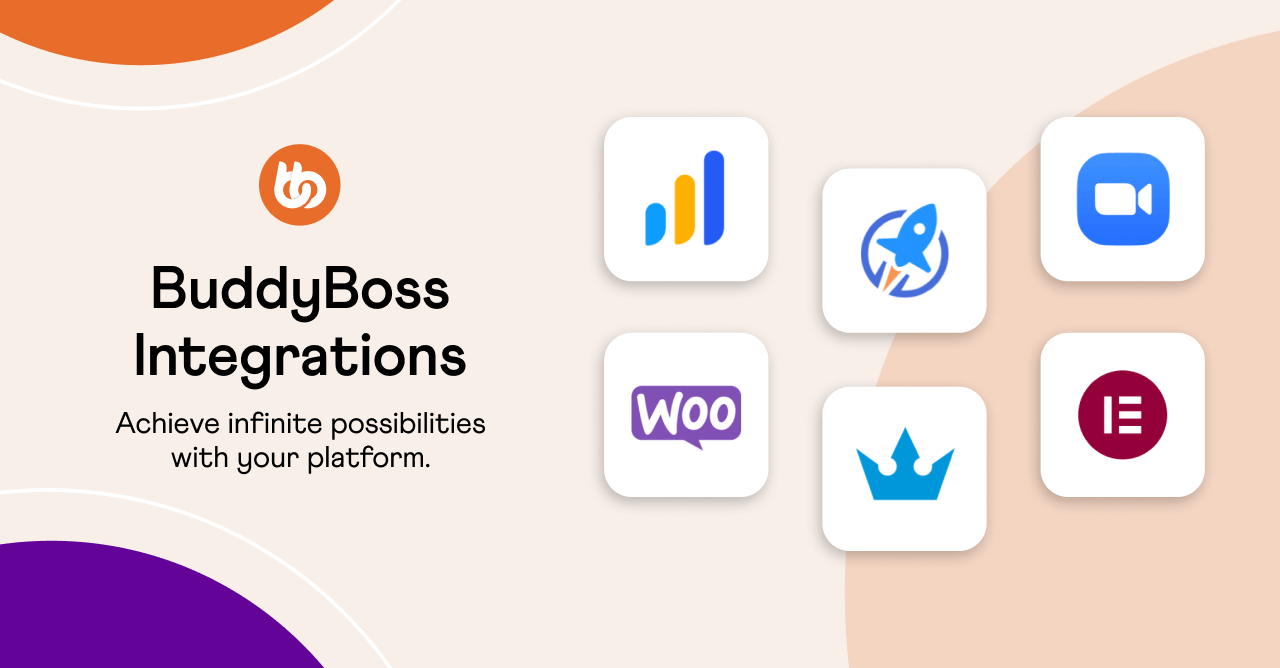
As a WordPress plugin, BuddyBoss integrates seamlessly with popular WordPress plugins like WooCommerce, LearnDash, and MemberPress.
Key integrations include:
- Gamipress integration for community gamification with badges, points, and leaderboards
- Uncanny Automator compatibility that helps you save on Zapier costs
However, like any WordPress solution, you’ll need technical know-how to troubleshoot issues. When multiple plugins are involved, conflicts can arise and consume significant time.
From personal experience with LearnDash and Elementor, I would hold my breath during plugin updates, fearing something might break.
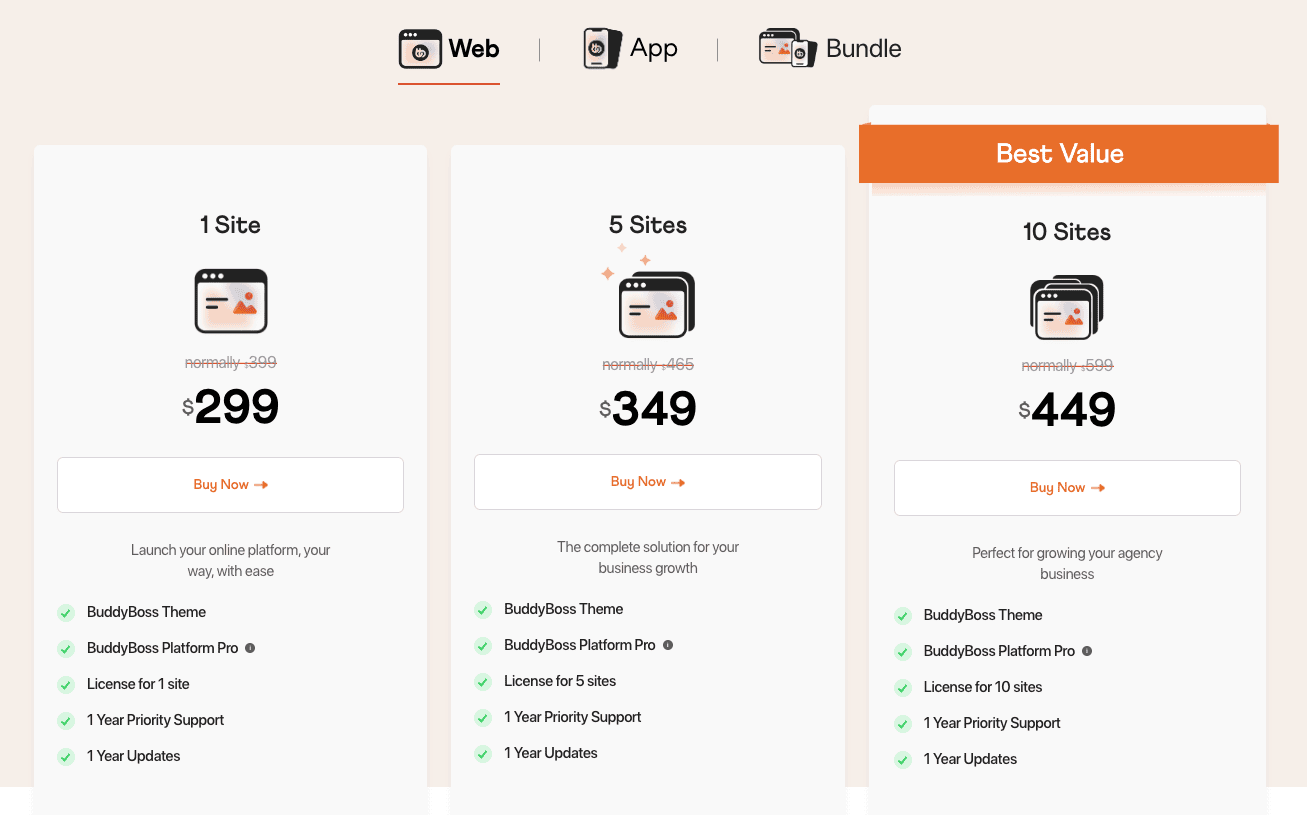
Its pricing starts at $299/year for 1 site. If you have an agency and want more site usage, go with its higher plans.
👉 Bottomline: BuddyBoss is perfect if you’re comfortable with WordPress and want full control over your community. But be ready to handle technical issues yourself when plugins conflict with each other.
Passion.io – LMS app builder for coaches

Passion is a mobile-first LMS platform that lets coaches create custom app store apps.
These feature-packed apps come with challenges to keep users engaged, progress tracking to visualize improvement, and motion-based exercises that work perfectly for coaches focused on client transformation.
Passion targets a specific niche: coaches who prioritize student results and transformations.
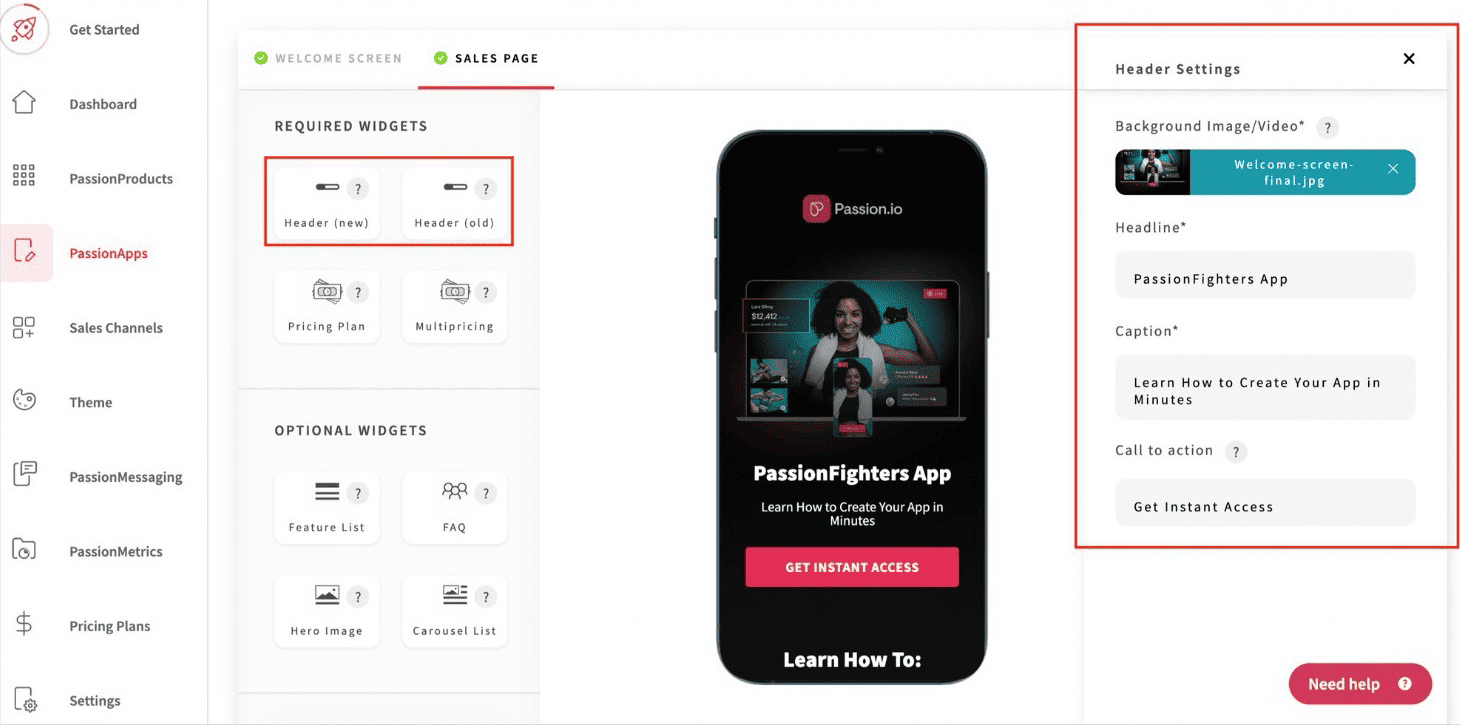
You can build various app types (audio, fitness, travel, coaching) or start from scratch with building blocks.
The platform offers drag-and-drop modules for mobile app creation, making content accessible on-the-go.
Its course builder features lesson widgets with Typeform integration for submissions and Calendly for booking consultations.
However, this micro-niche focus means Passion lacks some advanced course and community features, including user profiles.
Here’s what you’ll pay for Passion.io:
- Launch ($119/mo): Perfect for coaches starting out who need a branded app.
- Scale ($299/mo): Upgrades your app with Zapier integrations, white-labeling, and better support. Great for coaches ready to grow and automate.
- Expand ($699/mo): Gets your app in app stores with Apple Pay & Google Pay support, plus video calls. Built for established coaches wanting wider reach.
- Passion Plus: Their premium “done-for-you” package with personal support from a Success Manager, custom analytics, and marketing help. Ideal if you want the technical stuff handled for you.
Passion is built specifically for transformation coaches and their students.
If you are interested in learning more about this platform, do refer this hands on review that I have published earlier on Passion!
👉 Bottomline: Overall, if you are a transformation coach in need of your own mobile-centric app to track the progress of your students, especially in fitness, and hold them accountable, Passion would be the right platform for you.
Podia

Podia is an all-in-one digital selling platform similar to Kajabi. It allows you to host courses and communities, perform email marketing, and sell digital products.
However, compared to Circle, Podia’s community feature is quite basic.
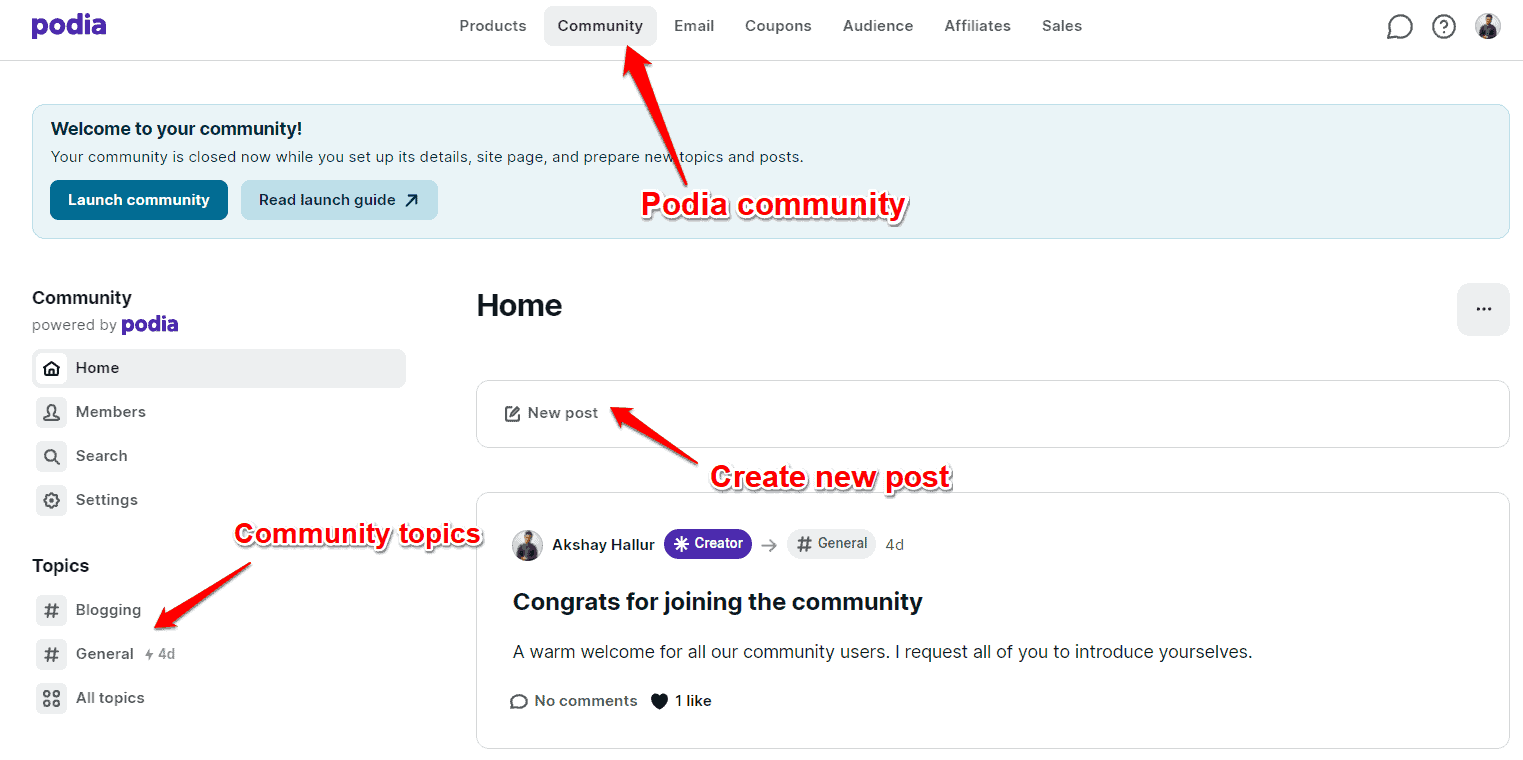
You can create different Topics (spaces).
And within each space, community members can create posts to interact with each other.
Unfortunately, there is a lack of advanced community management features compared to other dedicated tools reviewed in this blog post.
If you’re solely looking for a community platform, Podia may not be the best option available.
However, Podia’s pricing is quite attractive with just 2 simple plans:
- Mover ($39/mo): You get full community features and unlimited courses. But there’s a catch – a 5% transaction fee and no affiliate marketing options.
- Shaker ($89/mo): The big advantage here? Zero transaction fees and you can run your own affiliate program.
It can be considered an affordable alternative to Kajabi, but it does lack depth in features and may feel like a jack of all trades but master of none.
I’ve been using this platform from last 3 years. If you’re interested in learning more about the platform, do refer my complete review on Podia.
👉 Bottomline: Podia’s an affordable all-in-one platform that covers basics well, but its community features are pretty lightweight. If you need robust community tools, look elsewhere. But for bundling courses with simple discussions, it works.
Thinkific

Thinkific supports courses, memberships, and communities, similar to Kajabi.
Its communities are nothing but individual pages where students and instructors can interact through written posts and comments.

You can sell communities within your courses, memberships, and bundles. Or sell them as an order bump or as an upsell.
Unlike tools like Circle, Thinkific communities are not so feature-rich. It lacks feed customization, community moderation, gamification, etc.
StoryPrompt

StoryPrompt is a video-first community platform helpful for collecting video testimonials, reviews & feedback, offering coaching, and much more.
It eliminates the need for apps like Zoom for meetings. Whenever you wish, you can just share the links for joining the calls. No app downloads and logins are needed.
Its features include:
- Built-in transcriptions.
- Built-in video editor with features like trim clips, adding music & b-rolls, and change aspect ratios.
- Spaces, recaps, threads, direct messages, polls, rich posts, etc.
Discord

Discord is an online chat platform that was exclusively developed for gamers. It is now extended to other niches like tech, bitcoin, education, businesses, etc.
It has servers (similar to channels or spaces in other tools), direct messages, group chats, private channels, and much more.
If you need more features, you can go with Discord Nitro.
Despite its numerous features and high engagement levels, I don’t recommend using Discord.
In Discord communities, the signal-to-noise ratio tends to be quite low. People often chat incessantly, sometimes without adding any meaningful value. After all, ‘discord’ does means mess.
Slack

Slack is an instant messaging app, similar to Microsoft Teams, often used by new-age startups.
While intended for team collaboration, it’s also used to manage course communities due to features like threads, instant messaging, and member directories.
However, for building larger communities, I wouldn’t recommend Slack. It lacks features like community engagement, gamification, and the ability to host events and webinars.
Hivebrite

Hivebrite is a block-based community-building tool best suited for building communities in nonprofit, professional networking, education, and corporate sectors.
For communication, it has features like email campaigns, automatic newsletters, in-app notifications, and mobile push campaigns.
As this tool is developed keeping job sectors in mind, it has good collaboration tools. You have a job board, startups & projects, and forum features. These support job postings, sharing opportunities and resumes, connecting with partners, investors & co-founders, etc.
Hivebrite also has branded mobile apps.
Discourse

Discourse is free, open-source software you can use to host your communications. You can use it as a channel, chat room, group, space, or forum.
Discourse has hosted over 30,000+ online communities, including those of major brands like Atlassian, Asana, and Zoom.
It offers unlimited member hosting and robust spam prevention with two-factor authentication and Akismet integration.
Discourse’s plugin ecosystem enhances its functionality. For instance, the Patreon integration allows for customer rewards and online payment collection.
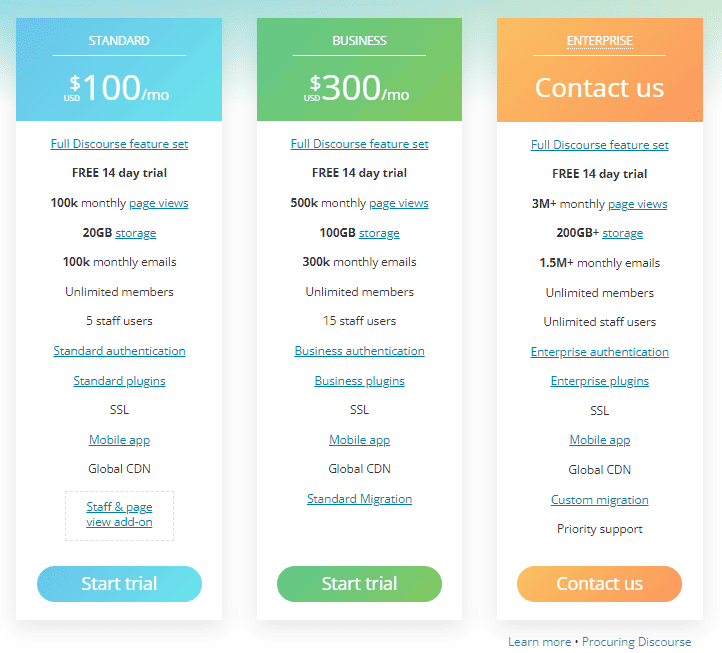
If you want more control, you can go with Discourse premium. Its lowest pricing starts at $100/mo. Refer to the screenshot above for more details.
Teachfloor
Teachfloor is an all-in-one online community and LMS platform for creators and coaches. If you want to host course-specific communities, this would be the ideal solution.
Similar to LMS platforms like LearnWorlds, it is completely white-labeled and is SCORM compliant.
For the community, it has spaces, one-to-one chat, embeds (embed spaces directly within courses), live streaming, integration with Stripe to collect payments, etc.
Amity
Amity is a social networking platform that helps you turn your apps or website into a community platform by adding interactive widgets.
For example, to connect with your visitors in real time, you can enable feeds, profiles, and groups in your apps. To help your customers, you can add chatbots or live chat widgets.
Amity’s community features:
- Comments, reactions, posts, and user profiles.
- Private chat, group chat, broadcast chat.
- Newsfeed, personal timelines, instant interactions, live stream.
Facebook Groups
Facebook Groups is a free platform for hosting communities, widely accessible due to Facebook’s popularity.
However, it has significant drawbacks compared to dedicated tools like Circle.so:
- User distraction from newsfeed, ads, and notifications, leading to poor engagement
- Limited customization options for community appearance and features
- Lack of built-in email and notification tools
- Absence of advanced features like member tagging, targeting, and gamification
Conclusion
Our top Circle.so alternatives are Heartbeat and Kajabi.
If you’re looking for a close alternative to Circle that shares similar design principles and supports up to 1,000 members in their beginner plan, Heartbeat might be your best bet. Their quick rollout of new features and smooth user experience show they’re serious about the app.
But if you want an all-in-one platform that lets you host feature-rich online courses, run marketing automation, manage email campaigns, and build deep community features (like feeds, chats, challenges, and meetups), then Kajabi could be more suitable.
One downside though: Kajabi’s beginner plan only supports up to 5 products if you host them within Kajabi. This could be limiting if you have multiple micro products for marketing.




